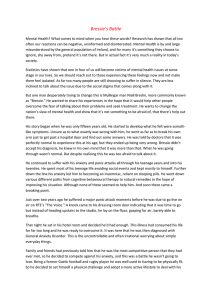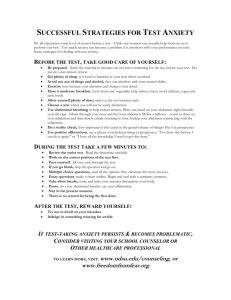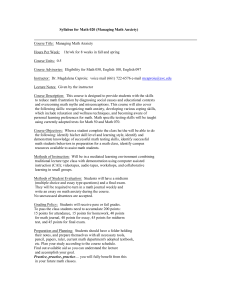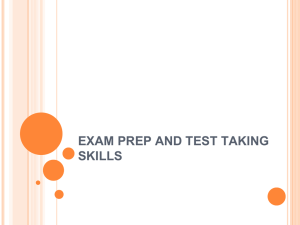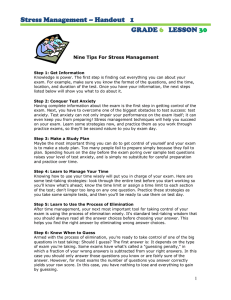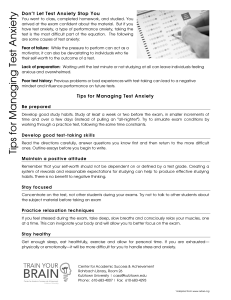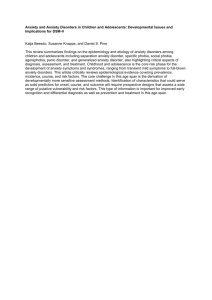Test Anxiety II
advertisement
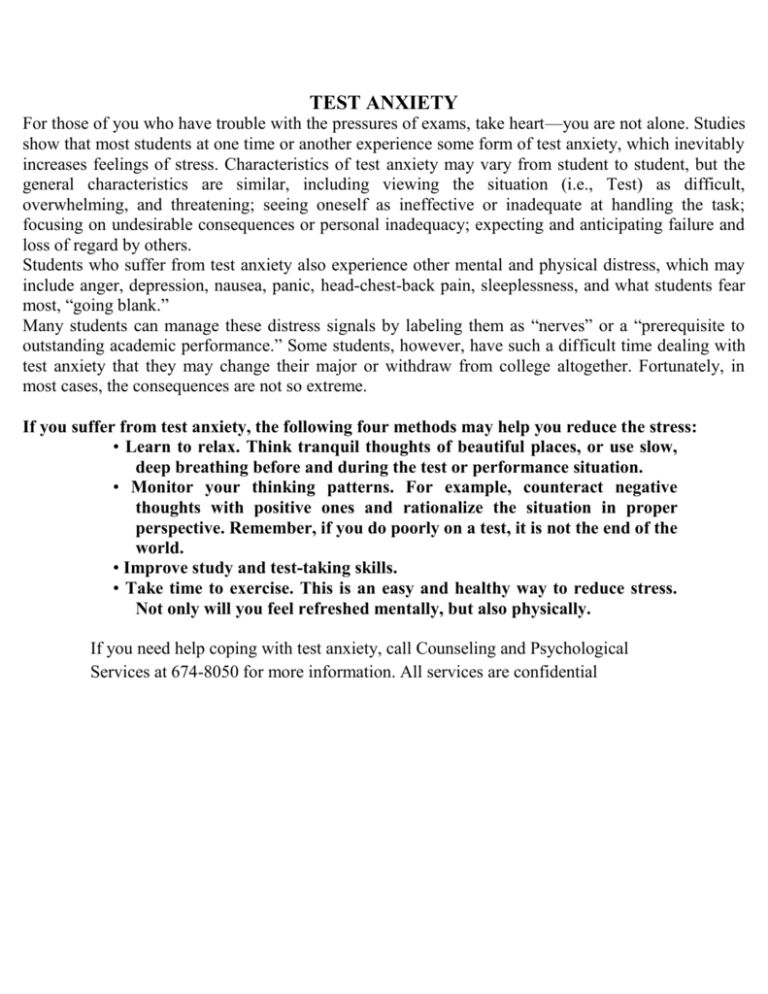
TEST ANXIETY For those of you who have trouble with the pressures of exams, take heart—you are not alone. Studies show that most students at one time or another experience some form of test anxiety, which inevitably increases feelings of stress. Characteristics of test anxiety may vary from student to student, but the general characteristics are similar, including viewing the situation (i.e., Test) as difficult, overwhelming, and threatening; seeing oneself as ineffective or inadequate at handling the task; focusing on undesirable consequences or personal inadequacy; expecting and anticipating failure and loss of regard by others. Students who suffer from test anxiety also experience other mental and physical distress, which may include anger, depression, nausea, panic, head-chest-back pain, sleeplessness, and what students fear most, “going blank.” Many students can manage these distress signals by labeling them as “nerves” or a “prerequisite to outstanding academic performance.” Some students, however, have such a difficult time dealing with test anxiety that they may change their major or withdraw from college altogether. Fortunately, in most cases, the consequences are not so extreme. If you suffer from test anxiety, the following four methods may help you reduce the stress: • Learn to relax. Think tranquil thoughts of beautiful places, or use slow, deep breathing before and during the test or performance situation. • Monitor your thinking patterns. For example, counteract negative thoughts with positive ones and rationalize the situation in proper perspective. Remember, if you do poorly on a test, it is not the end of the world. • Improve study and test-taking skills. • Take time to exercise. This is an easy and healthy way to reduce stress. Not only will you feel refreshed mentally, but also physically. If you need help coping with test anxiety, call Counseling and Psychological Services at 674-8050 for more information. All services are confidential




